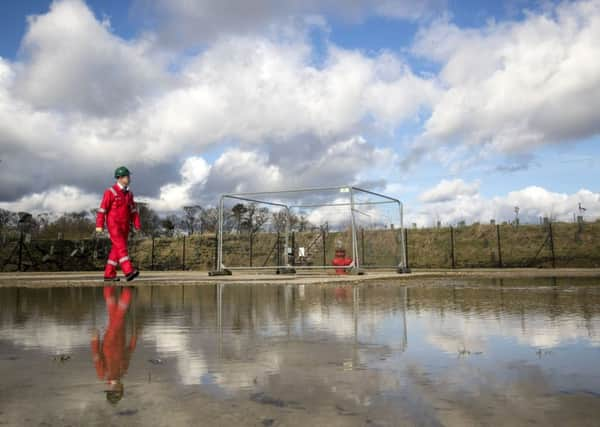Matt Ridley: From Russia to North Yorkshire, hidden agenda of fracking's opponents


At that time, most energy analysts were still arguing that shale gas was a flash in the pan. I concluded that that was almost certainly wrong and that we were witnessing an energy revolution of huge significance.
And so it proved.
America went from importing to exporting gas. The shale boom pumped hundreds of billions of dollars into the American economy through domestic production and lower prices. The environmental problems were minimal. President Obama’s Energy Secretary confirmed this in 2015, when he said: “I still have not seen any evidence of fracking per se contaminating groundwater.”
Advertisement
Hide AdAdvertisement
Hide AdOver the past decade, America has cut its carbon dioxide emissions faster than any country, thanks almost entirely to the shale gas revolution. It did so while simultaneously bringing heavy industry back onshore, whereas we have driven it away.
Saudi Arabia tried to kill the shale drilling business in 2014 by flooding the market and cutting prices. It failed –the technology keeps improving and the break-even price gets lower and lower.
Last November, I was on a shale-oil site in Colorado watching the new quiet-fracking fleet do its work: an operation that takes about the same length of time as building a wind turbine and is as limited in area, but produces hundreds of times more energy and is about two per cent as prominent in height in the landscape when it is finished.
In 2011, I wrote that “shale gas faces a formidable host of enemies in the coal, nuclear, renewable and environmental industries – all keen, it seems, to strangle it at birth, especially in Europe”.
I was right about that too.
Advertisement
Hide AdAdvertisement
Hide AdWhat was the reaction of the environmental movement to this gift from the gods?
To oppose it with all its might, even at the cost of telling the truth.
This year, Friends of the Earth was forced by the Advertising Standards Authority to withdraw several misleading claims it had made about shale gas. It even resorted to arguing that sand is carcinogenic. It did not quite have the brass neck to complain about dihydrogen monoxide, which is injected in large quantities into shale gas wells – for those whose chemistry is rusty, that is H2O, or water.
Who is behind this anti-shale propaganda?
Let us look at who stands to suffer from a successful shale revolution here.
Advertisement
Hide AdAdvertisement
Hide AdFirst, the subsidy-drunk renewable energy industry, still trying to justify things like burning American forests for electricity.
The former Department of Energy and Climate Change chief scientist, the late Professor David MacKay, found that in particular circumstances, using wood pellets to generate electricity could have a carbon footprint almost twice that of coal and four times that of gas, and yet we subsidise foreign wood pellets and stand in the way of shale gas.
The second group with an interest in undermining British shale gas, apparently, is a foreign power. Anders Fogh Rasmussen, the former Nato Secretary-General, has accused Moscow of campaigning to undermine shale gas.
Here is a quote from National Review magazine in 2015: “Russia has ramped up covert payments to environmental groups in the West. By supporting well-intentioned environmentalists with hard cash (often without their knowledge), Russian intelligence gains Western mouthpieces to petition Western audiences in its favour.”
Advertisement
Hide AdAdvertisement
Hide AdSure enough, the Kremlin’s mouthpiece, RT, Russia Today, has been broadcasting anti-UK shale propaganda on its “Keiser Report”, including the line that “frackers are the moral equivalent of paedophiles”.
The US Director of National Intelligence said very recently: “RT runs anti-fracking programming, highlighting environmental issues and the impacts on public health. This is likely reflective of the Russian Government’s concern about the impact of fracking and US natural gas production on the global energy market and the potential challenges to Gazprom’s profitability.”
This is what we are up against.
We will be burning gas for decades to come under any policy.
Even the National Grid’s extreme “gone green” scenario for future energy policy sees us burning almost as much gas in 2035 as we burn today.
Advertisement
Hide AdAdvertisement
Hide AdBut more than that, we have a huge chemical industry in this country, employing hundreds of thousands of people directly and indirectly.
It needs methane and ethane, derived from natural gas wells, as feedstock.
That industry will disappear rapidly if we do not exploit domestic shale. It has repeatedly warned us of this.
As the GMB union puts it, if exploratory drilling reveals a plentiful supply of UK shale gas reserves, “is it not a moral duty for Britain to take responsibility for providing for our own gas needs from those supplies rather than importing gas from elsewhere”?
Advertisement
Hide AdAdvertisement
Hide AdBeneath Lancashire and Yorkshire, in the Bowland shale, lies one of the richest shale gas resources ever discovered.
Just 10 per cent of it would be enough to provide 50 years of British needs.
We know how to get it out, using sand and water to make millimetre-wide cracks a mile and a half down, with minimal environmental risks.
The tiny group of middle-class southerners who go north to protest about this stuff are not representative of public opinion. Let us not give in to the 21st-century Luddites, commercial interests or foreign crony-capitalists who do not have our interests at heart.
Viscount Ridley is a Tory peer who spoke in a House of Lords debate on shale gas. This is an edited version. He was chairman of Northern Rock from 2004-07.